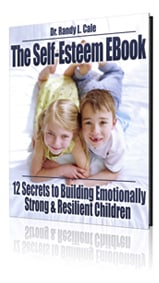Despite the challenges, many of you are getting away, either for a couple of days or maybe it’s a week away at the beach or off to a cabin in the Adirondacks. Either way, questions begin to emerge about how to manage these summer experiences.
Here are my top three mistakes, and how to correct them, in order to optimize your time away with family.
Mistake Number 1: Working harder at your children’s happiness than they do.
This might sound a bit unusual, but it’s a common mistake. And the problem is most often accentuated on vacation because we spend so much time, energy and resources devoted to creating a great experience.
“Working harder at their happiness” is the feeling you get in your gut when you are caught in a hopeless and futile discussion or argument with your children. The feeling is there because you are trying to get them to discover how to be happy with what they have right now by helping them find happiness in this bountiful and beautiful life that sits before them.
And what is your son or daughter doing in that moment? What are they fighting for?
They are often fighting for misery. They are fighting for a life that is lacking in some way. They are fighting for how life must change or bend or transform so their repeated preferences are met.
Now, for many of you, the entire summer, and certainly the family vacation, is geared to creating special times with much available to enjoy, and most of you will do a fantastic job at that. The problem emerges when you leave your job as mom/dad and get confused by jumping into your child’s ‘job’. Your job: setting up optimal conditions for enjoyment and happiness and step over into your child’s world. Their job: finding ways to accept those conditions and discover happiness, even in the challenges with the COVID limitations. Still, it’s their job to find happiness with the conditions you offer.
If you start working too hard to ‘fix’ every statement of complaint or boredom you will start to feel that horrible sensation in your gut, thinking something is wrong and that it’s your job as the parent to fix it.
That is not your job. It’s their job to fix their misery in the moment.
If you start to work harder at their happiness than they do, you will discover that nothing is ever enough. You will end up arguing for how to find happiness, and there they are fighting for their misery while on a beautiful vacation.
So, when your children are experiencing moments of boredom or where things didn’t work out exactly the way they want, you’ll find that it is a disservice to “rescue” them from that moment. Instead, allow them to have their moment of whining or complaining. Allow them to be unhappy with the restaurant you selected for dinner. Allow them to be mad at you because you decided to sit out a day at Disney. In essence, allow disappointment without fixing it.
Bottom line: Start well before vacation, and stay disciplined while you’re away. Don’t rescue them from their unhappiness in these moments; they must learn how to do it themselves. It will pass, and only then can they discover their own path to happiness.
Mistake Number 2: Abandoning all structure, to make things easy.
It likely won’t get easy or be enjoyable. We all thrive on a bit of structure, and it also means that someone is the captain of the ‘Family Ship’ (so to speak). While they may complain or resist it at times, the research overwhelmingly supports the value of continued structure and routine.
So, in advance of a vacation, set the basic schedule. Know when you’ll get up and have breakfast, and roughly when you’ll leave to go to pre-determined activities. Try to have the activities planned in advance, while leaving some room for free time.
While on the vacation, stick to your planned schedule. While you can leave some room for flexibility, the secret to keeping the vacation on track is to make no accommodations for whining, complaining or ugliness. And, equally important, don’t even give the complaint or whine a response. Don’t talk or negotiate or remind them of what you expect. Don’t engage these misery-making moments!
Finally, require some responsibilities even on vacation. I guarantee you will still have work to do – cleaning up a house rental, doing laundry, clearing dishes, etc. Make sure, to some degree, that your kids are continuing with some responsibilities. If they refuse to do a chore or two, just wait them out. Remember, you’re on vacation. They will eventually want to leave and go have fun.
The structure will ultimately lead to more satisfaction and fewer complaints along the way. It is the path to more fulfillment.
Mistake Number 3: You get weak on consequences and long on words.
How so, you ask? If you get hooked on the idea that you want your kids to enjoy every moment of their vacation, you inevitably start protecting them from the consequences of poor choices. When this happens, you can easily start talking and lecturing them…with an endless parade of words and discussion.
Your kids will learn to honor the limits that you set on their behavior, not by the lectures and discussions that you offer them, but by the consequences that come as a result of their choices. Let’s go over a simple example: You’re traveling in the car and the boys are bickering in the back seat. You can remind them. You can threaten them. You can yell at them. And you just notice that it keeps getting worse and worse as the trip goes on. It’s driving you crazy.
What’s needed is a clear consequence, not another lecture or discussion. Here’s how you do it: Let the boys know that whenever they start bickering or fighting, you’ll just pull the car over and sit there until there’s five minutes of silence. If you are clear about where the limit is, and they know what the consequence is for their hitting, bickering, yelling, or screaming in the car, you’ll find they quickly learn to honor that limit.
Few words. Precise, immediate action. This is an amazingly simple strategy that works every time!















